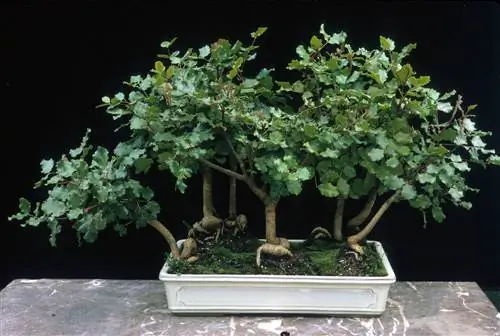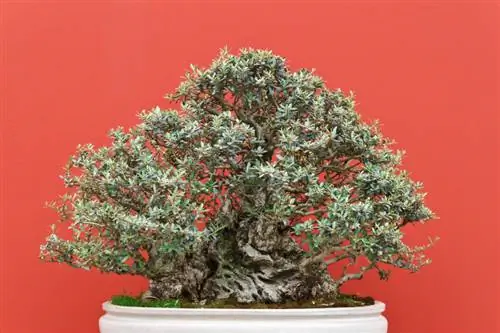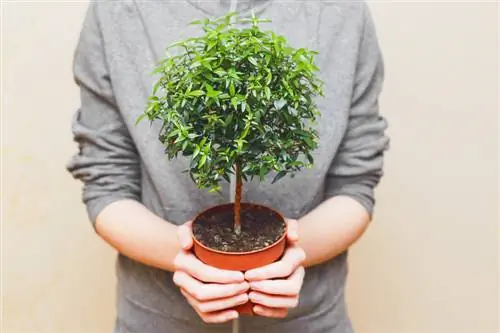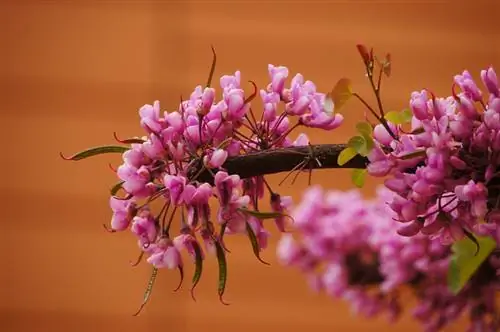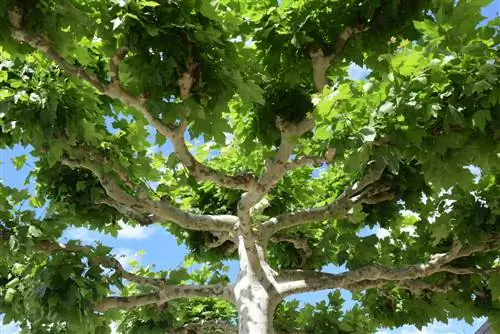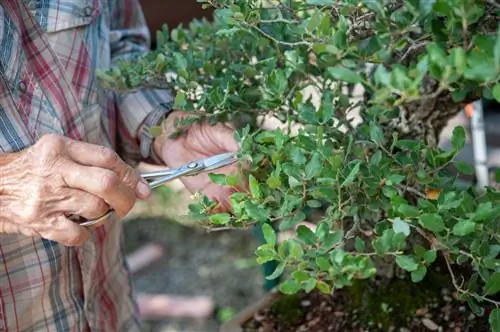- Author admin leonars@hobbygardeners.com.
- Public 2023-12-16 16:46.
- Last modified 2025-01-23 11:21.
The carob tree is native to the Mediterranean region, but can also beautify your garden as a bonsai. The tree looks even more impressive in the bonsai form. If you keep the plant small, it will hardly take up any space, even in narrow gardens or on balconies. There the carob tree impresses with its attractive red foliage.
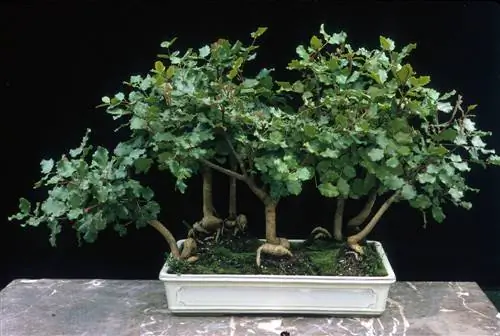
How to care for a carob tree bonsai?
The carob tree bonsai requires a sunny location, moderate watering, regular fertilizing, occasional pruning and wiring, cool winter conditions and repotting every 2-4 years in a well-drained substrate. Popular design forms are the free upright shape, the broom shape and the half cascade.
Location
Give your carob tree bonsai a piece of home back and place it in a full sun location. In summer a terrace is wonderful.
Possible design forms
Popular designs for the carob tree as a bonsai are:
- The free upright form
- The broom shape
- The Half Cascade
Care
Pouring
Too much moisture damages the carob tree. To avoid waterlogging, you should only water the plant now and then and always wait until the substrate has dried.
Fertilize
In the period between March and November, fertilize your carob tree bonsai every two weeks with a liquid fertilizer (€4.00 on Amazon). In the cold season, limit fertilizer application to once a month.
Cutting
To preserve the bonsai shape, shorten new shoots as soon as they appear. This is possible all year round. In addition, you should remove the shoots from the trunk right from the start.
Wiring
The branches of the carob tree become woody very quickly. That's why it's unfortunately only possible to shape young, one-year-old branches into the desired shape using wire.
Wintering
When overwintering, watering behavior becomes even more relevant. Under no circumstances should you overwater your carob tree. Only when the top layer of substrate is completely dry should water be added again. In winter the tree likes it a little cooler. Temperatures should not climb higher than 15°C.
Repotting
Unlike other bonsai plants, moderate growth makes caring for the carob tree easier. For young specimens, repotting is only necessary every two to three years. You can later extend the interval to four years. Always ensure a well-drained substrate in the new container.

